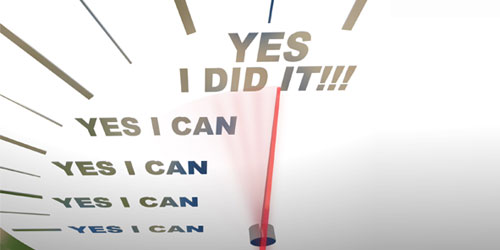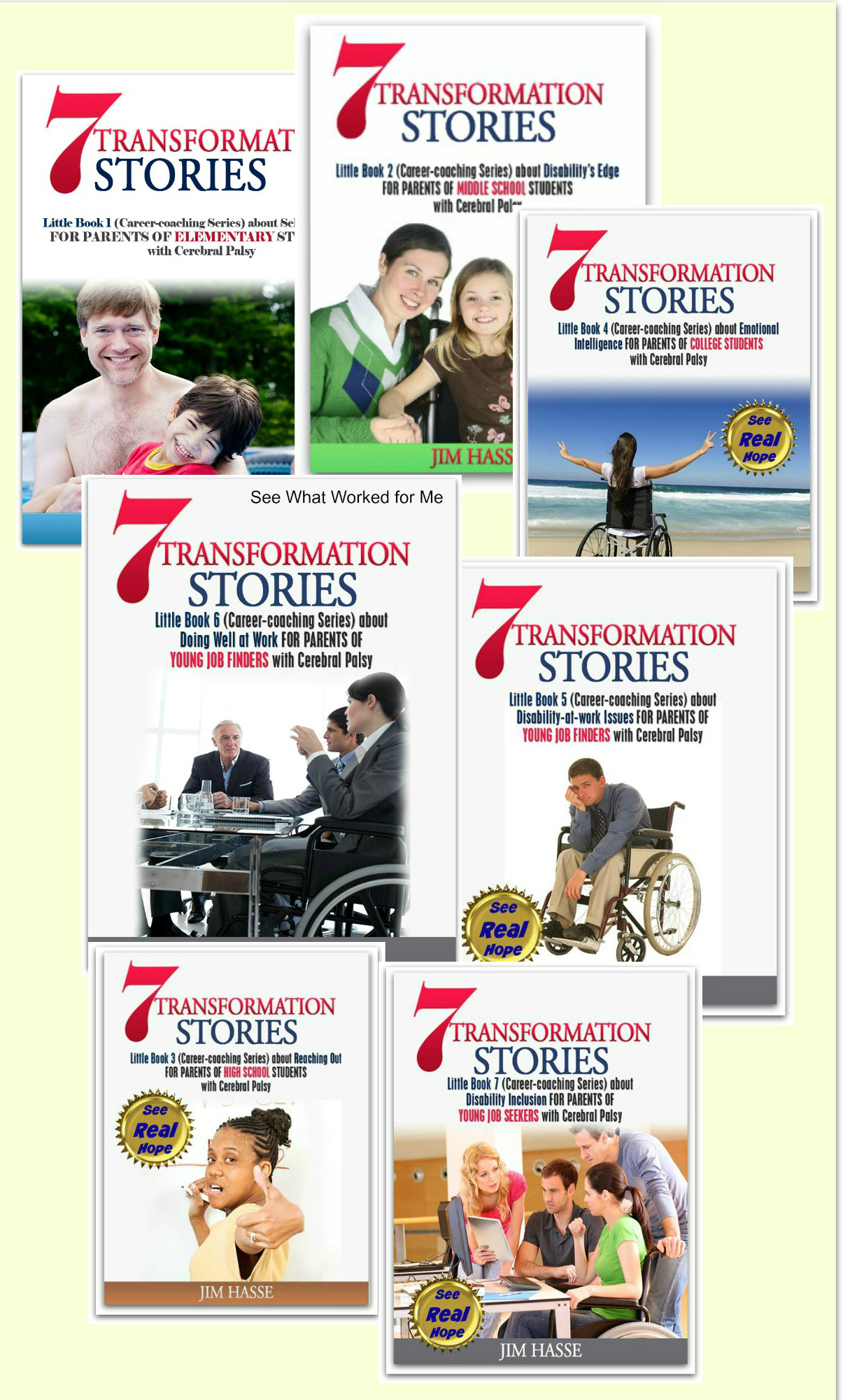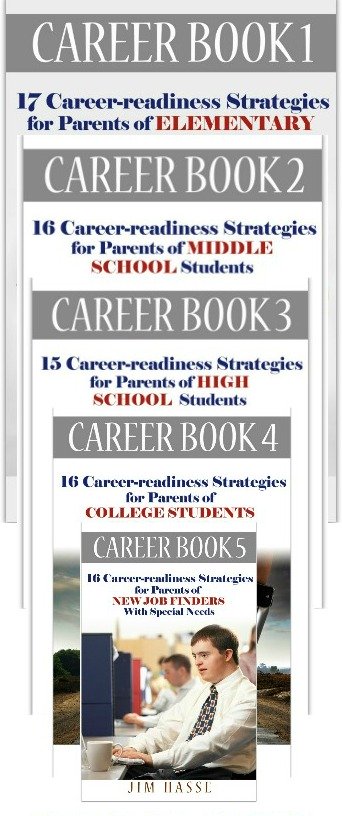Career Search: Cerebral
Palsy Career Builder for High School Students
By Jim Hasse, ABC, GCDF, Disability Employment Expert
_________________________________________________________
A “career search,” by the time your youngster with Cerebral Palsy (CP) is in high school, is much more than asking, “What do I want to be when I grow up?”
He or she may still be searching for the right vocational niche but also questioning, at this point, whether developing a meaningful career is at all doable with a disability such as CP. And, if developing a meaningful career is doable, what potential hurdles will he or she likely face? How can those hurdles best be handled?
High school is an uncertain time for most of us. Can you imagine the uncertainty your youngster with the added “difference” of CP must feel?
“Career search” at that point begins the quest for “how to” answers.
Be sure your youngster participates in “career days” his or her high school may hold for students periodically to explore the current career scene and job outlook. Also, encourage him or her to regularly visit the U.S. Department of Labor website to career search and keep up-to-date with employment trends.
 Courtesy of anvgraphics.blogspot.com.
Courtesy of anvgraphics.blogspot.com.Tap the advice of those who have been there
After years of struggle to gain a foothold in my own career, I’ve come to believe in this proposition:
Choosing not to be stopped by unfair practices and outright
prejudices (and the potential barriers to meaningful employment they present)
is an attitude which works in gaining jobs within the mainstream workplace,
even though you may have a significant disability.
And, people with disabilities who have torn down those barriers and are
thriving in meaningful jobs can nurture that same spirit and attitude in others
(and their mentors). After all, it helps to hear, first hand, how others in
similar circumstances to your own high school youngster have succeeded.
Since 2006, I’ve been collecting comments from job seekers with disabilities
about how they would describe their employment situation. In reviewing all of
the feedback I have received, I recall most vividly this advice from T.H:
"Treat managing your career with a disability as a journey of
'learning' for both you and your employer/colleagues. At times, even we (jobs seekers
with a disability) need to be educated about how to best cope with various
situations."
Also consider these tidbits, which describe in personal terms where we stand
today as a society in terms of hiring people with disabilities.
From Job Seekers
N.A.:
"I am visually impaired and find some
employees say I don't have enough experience, even though I did my career
search and have what is required. They see me for my disability -- not my
abilities."
From Those Who Are Under-employed
M.D.
"I'm a single mom and the money I make now assists with raising a child.
I'm 44, and it gets harder to find a good job.
E.B.
"I am working in an open space in the lobby,
and my desk is placed in front of an active door way. On the left side of my
desk, there is an active revolving door used daily by our guest and visitors.
Everyone has access to my desk; I have no personal space to store my pocket
book and coat. I am working on confidential files in the lobby. The lobby is
constantly active, and my employer refuses to provide a cubical space…
"I'm not getting the correct training -- with consideration towards
learning at a slower but an effective pace."
From Those Who Are Empowered
E.P.:
"I would like to offer a word of advice to
students with disabilities who are attending college. If you have extra time
between classes and are looking for work, a student job could be very
beneficial. Those who have applied for financial aid and have received a work
study award may be qualified for a wide variety of student jobs. Pick one that
offers activities you like. It will give you something else to add to your
resume after you graduate and will help increase your chances of finding
full-time work."
M.H.:
"In a large organization, the issue of
(continually) changing personnel means that knowledge about disability issues
(among your co-workers) is not constant…
"I have used the process of questioning a line manager in the following
manner. It actually allows the issue to be tabled in a very incisive but
non-aggressive manner. When I was faced with a system decision that
discriminated against me based on my disability, I phoned my line manager,
described the situation, and asked him, 'How should I feel about this?' The
question had the desired effect by placing the other in the position I
faced."
I.A.:
"Even if you are feeling unsure of
yourself, act as if you are full of confidence in your career search. Before
you know it, you will start gaining self-confidence…
"Although some of the Internet search engines are great, I found my job by
simply doing a Google search, using the type of job and location. For example,
you might type "elementary schools New York City." Then you might
call to get the names of the right decision makers and then send cover letters
and resumes to the schools you are interested in."
I.V.:
"One of the toughest issues is figuring out
whether to disclose having a disability. I initially decided not to disclose,
and that created an additional barrier in my career search because employers
were focusing on what I could not do instead of what I had to offer. I was
getting more calls after disclosing. It seems that, when they saw my
credentials and saw that I had a disability, they also assumed I had the
skills."
S.H.:
"Know your strengths and weaknesses and
work both to your advantage. Make sure your supervisor is willing to work with
you on your strengths -- not just focus on your weaknesses."
E.L:
"In your career search, know which jobs and
which careers are suitable for your personality and emotional makeup."
C.B.
"Keep a sense of humor and a sense of pride
with all you are able to do.
"Stay on top of technology. It is our future at work and at home.
"I find sharing articles with co-workers is a good way to pass the word
around that my employer is doing everything it can -- or that maybe things
could be better. All in all, my supervisor and co-workers seem to look out for
me."
J.M.:
"Examine your professional experience and
education and set realistic objectives in your career search, starting with the
type of job you can perform. This is particularly true for those who, like me,
acquired a disability after years in the workforce.”
From Those Who Help Others Get Jobs
P.D.:
"Seek attitude and assertiveness training.
Believe in yourself, believe you can get a meaningful job and put forth the
effort needed to get that job."
K.H.:
"As a part of your career search, network
with as many people as possible when looking for a job, even if you don't think
they can be of any help to you. You never know. That individual might be able
to put you in contact with an employer.
"Finding a job and managing a career is a personal responsibility no one
else can carry out for you."
D.P.:
"Acquire social skills and a knowledge of
work culture."
V.N:
"Market yourself within your own (growing)
network of professional associations, groups, churches, schools etc."
S.K.
"Many people consider the inclusion of
people with disabilities as a favor (which it is surely not). Perhaps it's a
favor in both directions."
L.D.:
"The world does not owe people with
disabilities something.
"The first job to gain experience is often the hardest. Sometimes
volunteer work, internships, on-the-job training programs and/or school/work
experience programs can provide that much-needed experience.”
V.N.:
"Sell what the employer wants/needs -- not
necessarily your experience only."
R.R.:
"Job hunting is serious work. Start each
day by getting up at a regular hour. Pick a time (7:00 a.m.) and stick with it.
Get dressed as if you are going to work. Start making the calls to the leads at
the same hour each day (such as 9:30 a.m.)."
Notice that all of these employment issues are actually individual threads which
make up the fabric of an individual’s career search.
Now’s the time to help
your high school student with CP to acknowledge and address his or her own career
concerns with the help of those who have previously worked around barriers and have
succeeded in the mainstream job market.
Return from Career Search to Part-time Jobs
Go to Cerebral Palsy Career Builders
This is Creative Commons content. You can freely and legally use, share and repurpose it for non-commercial purposes only, provided you attach this sentence and the following attribution to it (including the two links):
Originally written and illustrated by Jim Hasse, ABC, GCDF, owner of Hasse Communication Counseling, LLC, who, as a person with cerebral palsy, served for 10 years as a vice president in a Fortune 500 company during his 29-year career in corporate communication. He’s an Accredited Business Communicator, certified as a Global Career Development Facilitator and author of 14 Amazon books about disability awareness and disability employment issues.





